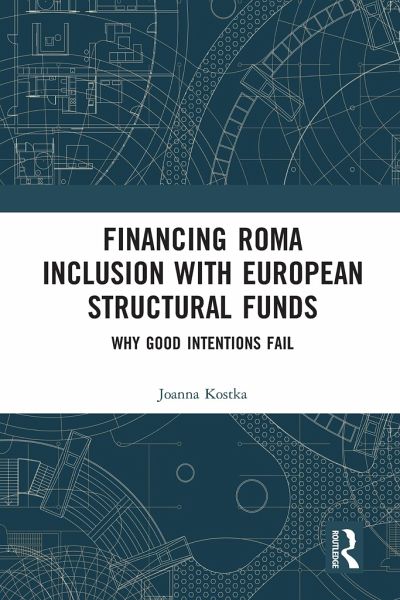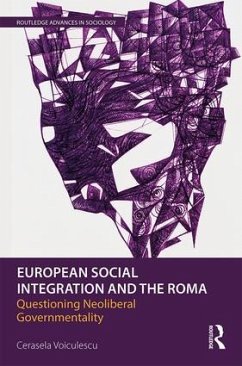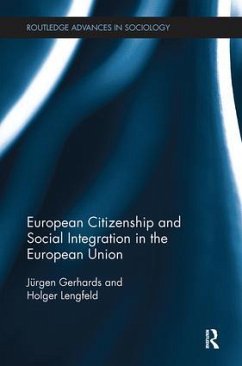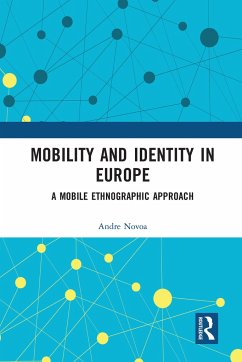
Financing Roma Inclusion with European Structural Funds
Why Good Intentions Fail
Versandkostenfrei!
Versandfertig in 1-2 Wochen
55,99 €
inkl. MwSt.
Weitere Ausgaben:

PAYBACK Punkte
28 °P sammeln!
This book provides an analysis of the highly politicized field of Roma inclusion and addresses the controversies surrounding the effectiveness of funding initiatives derived from European Cohesion Policy. It confronts the widely held notion that European financial transfers (Structural Funds) are highly suitable instruments to address the systemic causes of poverty and to facilitate changes towards substantive equality for Europe's largest ethnic minority. Shedding critical light on the Structural Funds programme, it offers an innovative approach to thinking about the value of European funding...
This book provides an analysis of the highly politicized field of Roma inclusion and addresses the controversies surrounding the effectiveness of funding initiatives derived from European Cohesion Policy. It confronts the widely held notion that European financial transfers (Structural Funds) are highly suitable instruments to address the systemic causes of poverty and to facilitate changes towards substantive equality for Europe's largest ethnic minority. Shedding critical light on the Structural Funds programme, it offers an innovative approach to thinking about the value of European funding schemes and efficacy of national Roma inclusion strategies. Multidisciplinary in approach, it draws on rich interview material and literature from fields including policy implementation, new public governance, equality studies, and political representation, Financing Roma Inclusion with European Structural Funds examines the implementation of European funding in Spain and Slovakia, two countries with contrasting policy outputs, and offers a nuanced picture of the way European Cohesion Policy interacts with intricacies of domestic policy-making. It thus sheds light on the key challenges facing Roma inclusion strategies in contemporary Europe and will be of interest for for scholars interested in European studies, equality policy, new public governance and minority studies.














